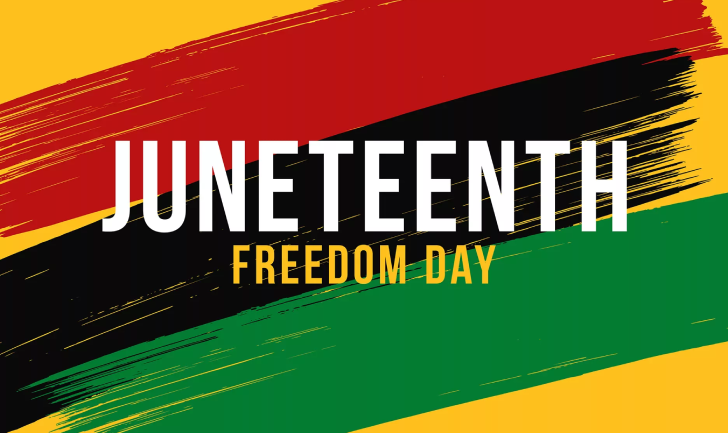Juneteenth
Juneteenth, celebrated on June 19th, commemorates the day in 1865 when enslaved African Americans in Galveston, Texas, were informed of their freedom—more than two years after the Emancipation Proclamation was issued by President Abraham Lincoln on January 1, 1863. This moment marked the effective end of slavery in the United States and is considered the longest-running African American holiday. Juneteenth, also known as Freedom Day, Emancipation Day, or Jubilee Day, has been celebrated for over 150 years with gatherings, parades, educational events, music, and food. It became a federal holiday in the United States in 2021, recognizing its profound significance in American history and the ongoing journey toward racial justice and equality.

Watch Day
National Watch Day, celebrated annually on June 19th, honors the history, craftsmanship, and cultural significance of timepieces. Watches have long been more than just tools for telling time—they’re symbols of style, precision, and personal expression. From classic mechanical watches to modern smartwatches, this day recognizes the evolution of watchmaking and the role watches play in our daily lives. The observance encourages people to appreciate their favorite timepieces, learn about horology (the study of timekeeping), and perhaps even invest in a new watch or get an old one serviced. It’s also a great opportunity to reflect on how we value time and the moments that matter most.

June 19th, historically known as Juneteenth, holds significant importance in American history.
The Birthday of Blaise Pascal (1623): Blaise Pascal, the renowned French mathematician, physicist, inventor, writer, and Catholic theologian, was born on June 19, 1623. Pascal made significant contributions to mathematics and science, including the development of Pascal’s triangle and Pascal’s law.
The Battle of Bunker Hill (1775): On June 17, 1775, the Battle of Bunker Hill, a pivotal conflict in the early stages of the American Revolutionary War, concluded. Although not on June 19th itself, this battle continued to have reverberations in American history, highlighting the resolve of the American colonies in their fight for independence from British rule.
Juneteenth (1865): The most notable event associated with June 19th is Juneteenth itself. On June 19, 1865, Union Army General Gordon Granger arrived in Galveston, Texas, and issued General Order No. 3, announcing the end of slavery in Texas and effectively freeing the last remaining enslaved African Americans in the Confederate states. This announcement came more than two years after President Abraham Lincoln’s Emancipation Proclamation had officially freed slaves in Confederate-held territory on January 1, 1863.
Congress Passes the Civil Rights Act (1866): On June 19, 1866, Congress passed the Civil Rights Act, which aimed to protect the rights of newly freed African Americans in the United States. This legislation marked an important step towards equality and civil rights for African Americans following the end of slavery.
First Women’s Rights Convention (1848): While not directly on June 19th, the first Women’s Rights Convention in U.S. history, the Seneca Falls Convention, began on July 19, 1848, and continued into June 19, 1848. This convention, held in Seneca Falls, New York, was a pivotal moment in the women’s suffrage movement and advocated for women’s rights, including the right to vote.
Texas Ratifies the Constitution (1865): On June 19, 1865, Texas ratified the Constitution, a significant step in the state’s reconstruction process after the Civil War.
The Philadelphia Zoo Opens (1874): On June 19, 1874, the Philadelphia Zoo, one of the oldest zoos in the United States, opened its doors to the public. It remains a popular attraction and has played a significant role in conservation and education about wildlife and biodiversity.
The Rosenbergs Executed (1953): On June 19, 1953, Julius and Ethel Rosenberg were executed in the United States after being convicted of espionage for allegedly passing nuclear secrets to the Soviet Union during the Cold War. Their case remains controversial and has sparked debates about justice, espionage, and the impact of McCarthyism on American society.
The Voting Rights Act of 1964: On June 19, 1964, the U.S. Senate passed the Civil Rights Act of 1964, which included provisions that sought to end discrimination in voting. This landmark legislation aimed to enforce the voting rights guaranteed by the Fourteenth and Fifteenth Amendments to the United States Constitution.


